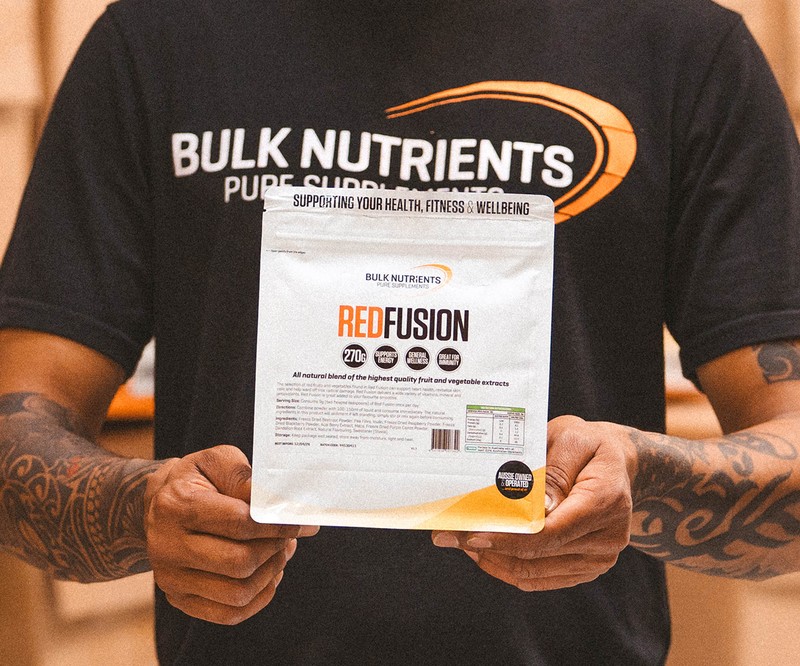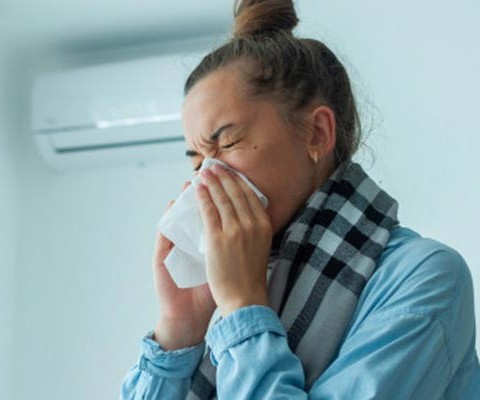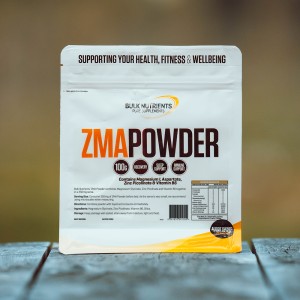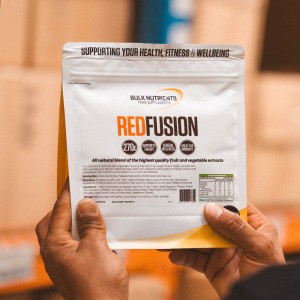The Role of Nutrition in Immune Function

For an uninterrupted fitness regime, a healthy and functioning immune system is paramount.
We must also remember that a resilient immune defence system won’t just bolster your chances of avoiding viruses or remaining asymptomatic, but it will also reduce the time of infection (if you are unfortunate enough to become symptomatic) subsequently reducing your risk of spreading the infection to others, particularly to the elderly who might not be as equipped as yourself when marching into battle with influenza, COVID-19, or even the common cold.
Threats to our immunity: reduced ability to exercise properly
Our ability to exercise, especially weight training, and get outdoors for fresh air was affected in the past due to gym and fitness centre closures and social distancing measures caused by COVID-19 restrictions. While it's beneficial to everyone to stay aways from others when sick, we recognise that moderate-intensity exercise is beneficial to our immune system for several reasons.
Exercise causes changes in white blood cells and antibodies, leading to a more rapid circulation which may detect (and consequently fight) diseases earlier.
The increase in body temperature from exercise may prevent bacteria from multiplying and could bolster the fight against infections.
Exercise can slow the release of some stress hormones (provided the intensity isn’t too high), as high levels of some stress hormones are known to increase the chance of illness.
Exercise may also help to flush bacteria from the lungs and airways.
- Exercise causes changes in white blood cells and antibodies, resulting in a more rapid circulation which may detect (and consequently fight) diseases earlier.
- The increase in body temperature from exercise may prevent the bacteria from multiplying and may bolster the fight against infections (similar to what happens when we have a fever).
- Exercise can slow the release of some stress hormones (as long as the intensity isn’t too high), with high levels of some stress hormones known to increase the chance of illness.
- Exercise may also help to flush bacteria from the lungs and airways.

Threats to our immunity: lack of proper nutrition
Previously, there were times when many found it difficult to locate essential grocery items. The supply patterns were disturbed, and it was common to observe empty shelves for lean meats, whole grains, and fruits and vegetables. On the other hand, items like chocolate, ice cream, chips, and lollies were abundant. This change in availability led to a reduction in the intake of micronutrients, whole foods, and protein, and an increase in ultra-processed foods. This not only affected our ability to retain muscle mass and maintain a healthy body fat level but also had a significant impact on our immune system.
How your diet affects your immune function
Research shows that poor nutrition choices and protein deficiency both result in impairment to humoral and cell-mediated immune function. Additionally, evidence from weight loss trials also suggests that low energy intake can interfere with healthy immune function. So how can we then structure our food behaviour to prevent a compromise in immunity?
Prioritise protein intake
Low protein intake is known to interfere with our immune system and our resistance to infection or disease because most immune mechanisms actually rely on the production and replication of active protein compounds. So, a lack of essential amino acids (the building blocks of protein) can result in an impaired response by the humoral immune system, immunity mediated by our extracellular fluids which secrete the antibodies to fight viruses!
Ensure your meals include a lean protein source and if your meal is low in protein, why not add a delicious Bulk Nutrients protein shake?
Supplementing glutamine and arginine may provide support
Over the past 10 years, Glutamine has been studied heavily for its ability to promote immune cell proliferation and immune function. In several trials, it was shown that glutamine supplementation can reduce infection and recovery time. In one study the inclusion of glutamine in a sports drink decreased the incidence of infections (cold, sore throat, flu) in marathon runners. I think it’s fair to say that glutamine may be effective, particularly for those already infected, for supporting immune function.
L-Arginine supplementation has been shown to increase blood lymphocyte proliferation and reduce T-cell numbers. Arginine is also the precursor of nitric oxide, an important microbicidal molecule involved with macrophage killer function. Daily supplementation MAY enhance your ability to fight infection.

Vitamins are essential
Ensuring you attain a wide range of vitamins and minerals (from a diet rich in whole foods if possible) will help support your bodily functions and the body’s ability to fight off infections.
There is convincing evidence for the role of vitamin A in fighting infections, as well as the negative impacts of vitamin A deficiency on immunity. Several trials have confirmed that a lack of vitamin A can cause immune alterations that increase the incidence of infectious disease, and death. Additionally, vitamin A supplementation in these cases to correct a deficiency has been shown to reduce the severity of symptoms from the infection.
Vitamin E functions as an antioxidant for the protection of our cells against oxidative damage. Controlled trials in both elderly and healthy young participants have demonstrated an enhancement of immune function with vitamin E supplementation.
Despite widespread coverage by the media of vitamin C as a combatant against the common cold, research on vitamin C to support immune function is actually quite unclear. The largest meta-analysis to date on human studies involving supplementation of vitamin C only showed immunity improvements in individuals with the lowest initial intakes of vitamin C.
In summary, the effects of vitamin A deficiency on immune function are significant and should be avoided. Additionally, there is some evidence that vitamin E and C may enhance the immune response by reducing oxidative stress. A diet compromising a high variety of different coloured fruits and veg will be your best strategy for avoiding the above vitamin deficiencies. If it becomes a time where all our fruits and veg aren’t available, it may be wise to invest in a multivitamin supplement to cover your bases.
We have a great range to choose from here at Bulk Nutrients. Green Fusion and Red Fusion are 100% natural vitamin and mineral powders that support energy levels and immune function, or for an easy all-in-one, I’d recommend checking out Vital Premix.
Fatty acids are important too
Fatty acids affect immune function not only by the total amount of fat in the diet but also by the ratio of omega-3 and omega-6 fatty acids. Experimental studies have shown that the functional properties of immune cells can be modified by supplementation with omega-3 fatty acids via fish oil or linolenic acid. However, in some studies, authors have suggested that immune function may actually be improved with a reduction in total fat intake. Thus, don’t use this time to get lazy with your diet and slump to more “junk” style foods. Letting your daily fat intake creep up, particularly if it isn’t from omega-3 fatty acids, has the potential to hurt your immunity.

Avoid an iron deficiency
Mechanistic data suggests that both iron deficiency and iron excess can increase the chances of infection. However, it’s also important to note that there is a fairly large range of iron intakes to which the body can function normally. With that said, if these times are being accompanied by a big drop in your red meat and green veg intake and you don’t think you can rectify it with better eating behaviour, it might be worth looking into an iron supplement.
Zinc is essential for immunity
Zinc is the most important mineral for immune function. Zinc deficiency is known to cause decreased T-cell function, impaired antibody response and depletion of macrophages and lymphocytes. Luckily for us, required intakes for zinc are relatively easy to achieve through a balanced diet. So as long as you haven’t slumped to the Twisties and Twinkies diet, you’ll be ok.
For a daily dose of Zinc you can’t go past Bulk Nutrients ZMA, which contains zinc, magnesium and vitamin B6 and together provide support for sleep, recovery and immune function.
Nutrition for immunity defence
To sum up, these are the key takeaways to keep your body healthy and immunity strong during flu season...
- Exercise causes changes in white blood cells and antibodies, resulting in a more rapid circulation which may detect (and consequently fight) diseases earlier.
- Keep your protein intake high. If lean meats and dairy are hard to come by, supplement with whey or casein protein powders.
- Don’t take your calories too low. This probably isn’t the best time for a fat loss phase.
- Glutamine and l-Arginine supplementation may bolster your immune defence.
- Consume a broad array of multicoloured fruits and vegetables to prevent any chance of vitamin deficiencies, particularly vitamins A, C and E.
- If fruits and veg are hard to get into your diet, look into a multivitamin supplement. Browse the complete range of Bulk Nutrients immune support supplements for the highest quality and best price.
- Keep daily fat intake low to moderate, but with high consumption of omega-3 fats.
- While deficiencies are rare, zinc and iron deficiencies can seriously compromise immunity. If you think you are at risk, it may be worthwhile to look at supplementing these minerals.

Jackson Peos
Jackson Peos has completed a PhD at the University of Western Australia, and has a straightforward approach to nutrition and supplements.
He's completed his BSc in Sports Science, and Exercise & Health, and his BSc (Hons) in Exercise Physiology.
References:
- Ballmer, P.E., and H.B. Staehlin. 1994. Beta carotene, vitamin E, and lung cancer. N. Engl. J. Med.330(15):1029-1035.
- Barbul, A., D.A. Sisto, H.L. Wasserkrug, and G. Efron. 1981. Arginine stimulates lymphocyte immune response in healthy human beings. Surgery 90(2):244-251.
- Barone, J., J.R. Herbert, and M.M. Reddy. 1989. Dietary fat and natural-killer-cell activity. Am. J. Clin. Nutr.50(4):861-867.
- Beisel, W.R. 1982. Single nutrients and immunity. Am. J. Clin. Nutr. 35(suppl.):415-468.
- Chandra, R.K. 1991. 1990 McCollum award lecture. Nutrition and immunity: Lessons from the past and new insights into the future. 53:1087-1101.
- Endres, S., R. Ghorhani, V.E. Kelley, K. Georgilis, G. Lonnemann, J.W.M. van der Meer, J.G. Cannon, T.S. Rogers, M.S. Klempner, P.C. Weber, E.J. Schaefer, S.M. Wolff, and C.A. Dinarello. 1989. The effect of dietary supplementation with n-3 polyunsaturated fatty acids on the synthesis of interleukin-1 and tumor necrosis factor by mononuclear cells. N. Eng. J. Med. 320:265-271.
- Gershwin, M.E., editor; , R.S. Beach, editor; , and L.S. Hurley, editor. , eds. 1985. Nutrition and Immunology. Orlando, Fla.: Academic Press.
- Good, M.F., L.W. Powell, and J.W. Halliday. 1988. Iron status and cellular immune competence. Blood Rev.2:43-49.
- Kelley, D.S., D.B. Branch, and J.M. Iacono. 1989. Nutritional modulation of human status. Nutr. Res. 9:965-975.
- Kjolhede, C., and W.R. Beisel. 1995. Vitamin A and the immune function: A symposium. J. Nutr. Immunol.4:xv-143.
- Kramer, T.R., R.J. Moore, R.L. Shippee, K.E. Friedl, L. Martinez-Lopez, M.M. Chan, and E.W. Askew. 1997. Effects of food restriction in military training on T-lymphocyte responses. Int. J. Sports Med. 18:S84-S90.
- Meydani, S.N., and M. Hayek. 1992. Vitamin E and immune response. Pp. 105-128 in Nutrition and Immunology, R.K. Chandra, editor. , ed. St. John's, Newfoundland: ARTS Biomedical.
- Nieman, D.C., S.I. Nelson-Cannarella, D.A. Henson, D.E. Butterworth, O.R. Fagoaga, B.J. Warren, and M.K. Rainwater. 1996. Immune response to obesity and moderate weight loss. Int. J. Obes. Relat. Metab. Disord.20(4):353-360.
- Tang, A.M., N.M.H. Graham, and P. Saah. 1996. Effects of micronutrient intake on survival in human immunodeficiency virus 1 infection. Am. J. Epidemiol. 143:1244-1256.
Related Blogs

The Complete Guide to Green and Red Fusion
Posted by Bulk Nutrients
Estimated reading time: 13 minutes

Fight off the Winter Sniffles
Posted by Ellie Hearn
Estimated reading time: 5 minutes

ZMA for Improved Health, Immunity and Sleep
Posted by Bulk Nutrients
Estimated reading time: 2 minutes
















































